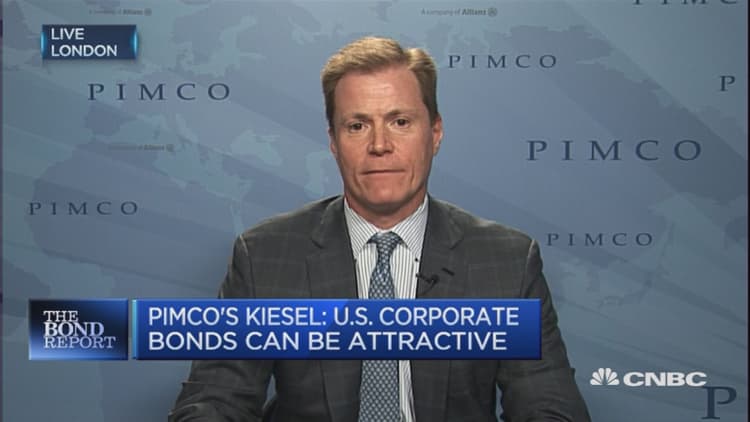Central bank policy has suppressed bond yields in many countries, but the U.S. credit market still looks attractive - albeit with some problems, experts told CNBC.
U.S. credit is the most attractive investment opportunity in the credit world at the moment, according to Mark Kiesel, CIO of global credit at PIMCO because, whereas many central banks around the world have decided to buy up corporate bonds, the Federal Reserve has not.
"The ECB has been buying European corporate bonds; you're going to see the Bank of England start to buy corporate bonds in the U.K.," he told CNBC's Squawk Box.
"In the U.S., the Fed is not buying corporate bonds. They're less attractive than they were at the beginning of the year, but we still think a modest overweight to credit makes sense."

As evidence of this increased popularity for U.S. assets, investors are moving huge amounts into fixed income. For example, between mid-June and mid-September, nearly $8 billion flowed into investment grade credit ETFs, according to Bloomberg data.
On the other hand, U.S. government bonds are proving to be less popular, even though treasuries offer much higher yields compared to, for instance, negatively-yielding German bunds.
"U.S. treasuries are becoming less attractive to non-U.S. investors, as the increased cost of currency hedging is wiping out the extra yield Treasurys offer," Richard Turnill, global chief investment strategist at BlackRock, said in a blog post.
"Bonds tend to have higher correlations to stocks during periods when markets are concerned about Fed tightening, damaging their traditional role as portfolio diversifiers."
Other investment opportunities in markets include the consumer sector and housing, according to Kiesel.
"In the U.S., we like non-agency mortgages quite a bit. We think housing is actually mid-cycle," he said. "Some industries are later cycle, like autos and airlines, but housing in the U.S. has a lot of pent-up demand."
Clarification: This article has been updated following a clarification from PIMCO.


